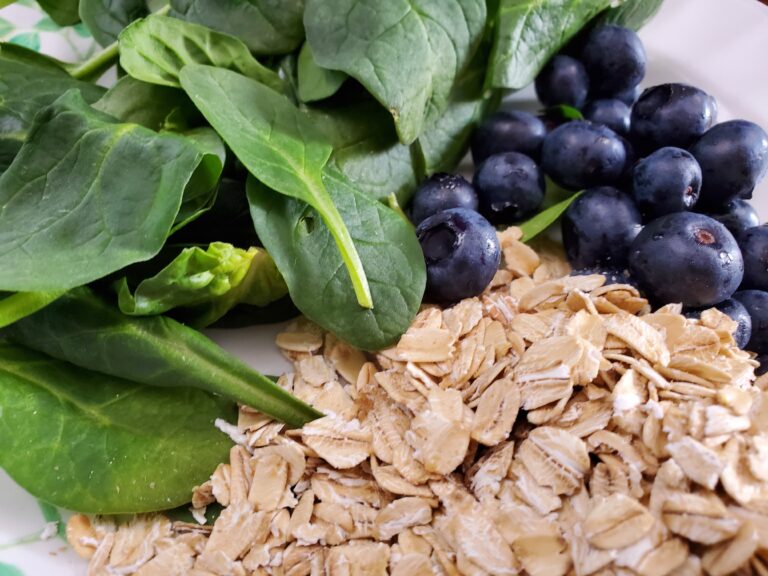There is no one specific diet for endometriosis. No food, diet, or supplement will “cure” endometriosis, but it can help manage symptoms and is great for overall health and well-being. Your diet needs to be individualized to your specific needs, and it can take quite a bit of experimentation to find what works for you.
Some studies have found that a few things seem to help manage symptoms of endometriosis. Most of the strategies help to eliminate any food intolerances and influence inflammation and estrogen (Thomas & Natarajan, 2013). Some of the dietary strategies might include:
- Gluten free diet (Marziali et al., 2012)
- Low FODMAP diet (Moore et al., 2017)
- Anti-inflammatory diet (Leonardi et al., 2020)
- Fruits, vegetables (“preferably organic”), and whole grains (Ghonemy & El Sharkawy, 2017; Harris et al., 2018)
- Antioxidants, such as vitamins A, C, D, and E as well as B vitamins (Darling et al., 2013; Ghonemy & El Sharkawy, 2017; Huijs & Nap, 2020; Thomas & Natarajan, 2013) [Caveat- one study stated that vitamins from vitamin rich food and not supplements were noted with the difference (Darling et al., 2013)]
- Anti-inflammatories such as green tea, resveratrol, fish oil, healthy fatty acids (omega-3), N-acetylcysteine, quercitin, curcumin, parthenium, nicotinamide, 5‐methyltetrahydrofolate (Ghonemy & El Sharkawy, 2017; Huijs & Nap, 2020; Leonardi et al., 2020; Signorile, Viceconte, & Baldi, 2018)
- High fiber diet (Thomas & Natarajan, 2013)
- Rule out food intolerances and individualize your diet (Karlsson, Patel, & Premberg, 2020; Kronemyer, 2019; Leonardi et al., 2020)
- “Balanced diet with adequate vitamins and minerals, reduction of alcohol, sugar, and caffeine intake, exclusion of fructose or lactose intolerance” (Halis, Mechsner, & Ebert, 2010)
- The consumption of soy is controversial in endometriosis; however, Huijs & Nap (2020) note that “the amount of phytoestrogens present in soy is relatively low, making the effect of avoiding soy on suppressing endometriosis-related symptoms questionable”. They conclude that “there is insufficient evidence to advise women with endometriosis to avoid soy” (Huijs & Nap, 2020).
Karlsson, Patel, and Premberg (2020) summed it up best by stating that “participants experienced decreased symptoms and increased well-being after adopting an individually-adapted diet”; therefore, it may take some experimenting to find what works best for you as an individual.
*Interstitial cystitis is often called the “evil twin” of endometriosis and its symptoms can be greatly influenced by diet (see Interstitial Cystitis).
more topics:
Curcumin’s effect on endometriosis
Endometriosis Diet and Nutrition
Social gatherings and food choices
Links:
- “Endo Diet” from the Nutritionista
- Podcast on “Outsmart Endometriosis: The Elimination ‘Undiet’ for Endometriosis with Dr Jessica Drummond”
References
Darling, A. M., Chavarro, J. E., Malspeis, S., Harris, H. R., & Missmer, S. A. (2013). A prospective cohort study of Vitamins B, C, E, and multivitamin intake and endometriosis. Journal of Endometriosis and Pelvic Pain Disorders, 5(1), 17-26. Retrieved from https://journals.sagepub.com/doi/abs/10.5301/je.5000151
Ghonemy, G. E., & El Sharkawy, N. B. (2017). Impact of changing lifestyle on endometriosis related pain. IOSR Journal of Nursing and Health Science, 6(2), 120-129. DOI: 10.9790/1959-060205120129
Halis, G., Mechsner, S., & Ebert, A. D. (2010). The diagnosis and treatment of deep infiltrating endometriosis. Deutsches Ärzteblatt International, 107(25), 446. Retrieved from https://www.ncbi.nlm.nih.gov/pmc/articles/PMC2905889/
Harris, H. R., Eke, A. C., Chavarro, J. E., & Missmer, S. A. (2018). Fruit and vegetable consumption and risk of endometriosis. Human Reproduction, 33(4), 715-727. Retrieved from https://doi.org/10.1093/humrep/dey014
Huijs, E., & Nap, A. W. (2020). The effects of nutrients on symptoms in women with endometriosis: a systematic review. Reproductive BioMedicine Online. Retrieved from https://www.sciencedirect.com/science/article/abs/pii/S147264832030225X
Leonardi, M., Horne, A. W., Vincent, K., Sinclair, J., Sherman, K. A., Ciccia, D., … & Armour, M. (2020). Self-management strategies to consider to combat endometriosis symptoms during the COVID-19 pandemic. Human Reproduction Open, 2020(2), hoaa028. Retrieved from https://academic.oup.com/hropen/article/2020/2/hoaa028/5849477?login=true
Karlsson, J. V., Patel, H., & Premberg, A. (2020). Experiences of health after dietary changes in endometriosis: a qualitative interview study. BMJ open, 10(2), e032321. https://bmjopen.bmj.com/content/10/2/e032321.abstract
Kronemyer, B. (2019). Nutrient intake and gastrointestinal comorbidities with endometriosis. Contemporary OB/GYN, 64(10), 26-26. Retrieved from https://search.proquest.com/openview/1b532d099eb09103200be8ee1bae4f3c/1?pq-origsite=gscholar&cbl=48920
Marziali, M., Venza, M., Lazzaro, S., Lazzaro, A., Micossi, C., & Stolfi, V. M. (2012). Gluten-free diet: a new strategy for management of painful endometriosis related symptoms?. Minerva chirurgica, 67(6), 499-504. Retrieved from https://europepmc.org/article/med/23334113
Moore, J. S., Gibson, P. R., Perry, R. E., & Burgell, R. E. (2017). Endometriosis in patients with irritable bowel syndrome: specific symptomatic and demographic profile, and response to the low FODMAP diet. Australian and New Zealand Journal of Obstetrics and Gynaecology, 57(2), 201-205. Retrieved from https://obgyn.onlinelibrary.wiley.com/doi/abs/10.1111/ajo.12594
Signorile, P. G., Viceconte, R., & Baldi, A. (2018). Novel dietary supplement association reduces symptoms in endometriosis patients. Journal of cellular physiology, 233(8), 5920-5925. Retrieved from https://onlinelibrary.wiley.com/doi/abs/10.1002/jcp.26401
Thomas, D. S., & Natarajan, J. R. (2013). Diet–A New Approach To Treating Endometriosis–What Is The Evidence?. IOSR Journal of Nursing and Health Science, 1(5), 4-11. Retrieved from https://www.researchgate.net/publication/282006175_Diet-A_new_approach_to_treating_endometriosis-_What_is_the_evidence

